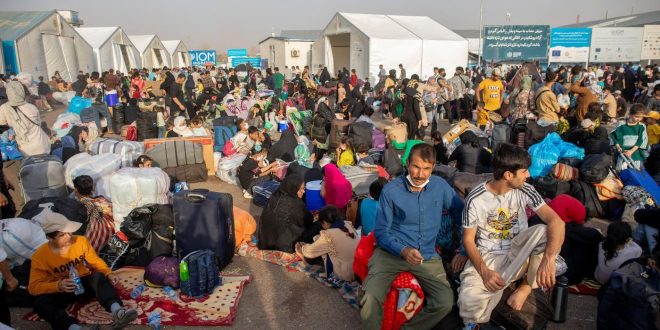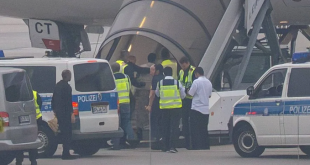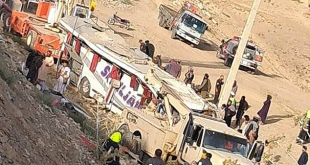KABUL – Afghanistan’s fragile humanitarian infrastructure is buckling under the pressure of mass returns from Iran and Pakistan, as more than 1.4 million people have crossed back into the country this year, including over 1 million from Iran alone, the Norwegian Refugee Council (NRC) warned in a press release on Wednesday.
The surge in returns follows heightened regional tensions and the enforcement of stricter deportation policies in Iran. The influx reached a critical point after 13 June, with UNHCR reporting a peak of over 43,000 individuals registered in a single day on 1 July. The vast majority of returnees are arriving with little or no belongings, placing severe stress on already overstretched aid services in western Afghanistan.
“We are seeing families arrive exhausted and distressed to a country that has very limited capacity to support and reintegrate them. We are doing everything we can, but the scale of needs is exceeding the current resources,” said Jacopo Caridi, NRC’s Country Director in Afghanistan.
Many of the returnees had lived in Iran for decades, some even born there, and now face an uncertain future in a country still reeling from decades of war, economic collapse, and political instability. Afghanistan’s ability to absorb this sudden population growth is critically impaired by sweeping international aid cuts and a struggling public service system. Nearly two-thirds of the population already depend on humanitarian assistance for survival.
Despite the dire situation, local communities have shown extraordinary generosity. NRC staff report that some Afghan families are hosting returnee households in their own homes. Afghan authorities, too, are mobilizing the few resources available, but according to NRC, the local systems simply are not equipped to manage the scale of this emergency.
Returnees are in immediate need of basic essentials—shelter, clean water, food, legal documentation, healthcare, and access to education. Without an urgent increase in international support, aid agencies warn of further humanitarian deterioration and rising instability.
“If current trends continue, Afghanistan could see over three million returnees by the end of 2025,” Caridi cautioned. “The international community must not turn its back on Afghan civilians. Both returnees and host communities urgently need support to prevent further suffering and instability.”
The NRC is calling for an immediate end to involuntary returns, urging all countries to adhere to the principles of voluntary, safe, and dignified repatriation. The organization also emphasized the need for greater international responsibility-sharing, particularly from nations that have hosted Afghan refugees for decades.
“Involuntary returns should be halted as current conditions in Afghanistan do not meet the minimum standards for safety or sustainability,” Caridi said. “We also call for greater international responsibility-sharing and support for countries that have hosted Afghan refugees for decades.”
With Afghanistan’s humanitarian response nearing collapse under the pressure of mass returns and insufficient aid, NRC and other aid agencies are appealing for urgent global intervention to avert a deeper crisis
 Afghanistan Times
Afghanistan Times




